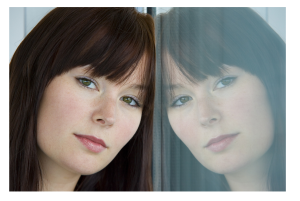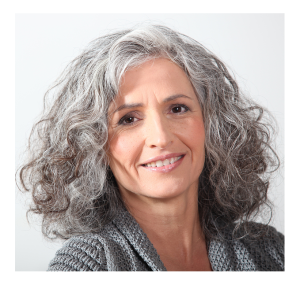There are those who can’t stand to be alone with themselves for long, feeling as though they are less worthy if they aren’t out with friends or more importantly – to them – in some sort of relationship.
 Then there are people like me. We may enjoy our relationships, wanting one even, but identity is not forged as a function of the “other.” Nor are we dependent on external perceptions to a significant extent, as measured by our dating status, couple status, or the presence of a ring on the third finger of the left hand and the title “Missus” on official documents.
Then there are people like me. We may enjoy our relationships, wanting one even, but identity is not forged as a function of the “other.” Nor are we dependent on external perceptions to a significant extent, as measured by our dating status, couple status, or the presence of a ring on the third finger of the left hand and the title “Missus” on official documents.
We are comfortable on our own, living a state of self-esteem that has to do with our own capacity, with self-knowledge, with self-reliance. Our lives may also include a universe of people we love, friendships and family, the usual ups and downs – but logistically and legally – as a party of one.
In a compelling and articulate review of two recent books, Women’s Voices for Change takes on the issues of women on their own, as psychologist Cecilia Ford elaborates on what it means in American society for the fairer sex to be alone.
Single by Choice
As I consider the options I exercised as a young woman, and a natural preference for considerable time alone, I find the issues raised in Dr. Ford’s article fascinating. I realize that when I was younger, I wasn’t single by choice but rather, by circumstance. Then again, I felt no pressing need for marriage and didn’t think much about it – I was pursuing my education, then my career, had a few relationships here and there, all while enjoying fantastic friendships with smart, interesting women. I was living my life.
I never suffered the usual sense of smallness if I wasn’t with a man – a sense of being “less” that a few of my female friends experienced. I will clearly state that there were periods of time when I felt my aloneness as a burden, and I was indeed lonely. There were times that I wondered “why not me?” as I grew increasingly convinced that a long-term relationship eluded me because I was not “good enough.”
In this sense, I was typical in the ways that Dr. Ford describes, as she writes:
… we often assume that the single woman is not single by choice: Something is amiss…
And yet, it was only after marriage and divorce that I felt the full intensity of the differences in our society – the views we take toward those who are (or have been “chosen”) versus those who are not, or have never been. And now, all these years after divorce, I believe that I remain single by choice. Naturally, that doesn’t mean I can read the future or that my situation isn’t subject to change. But at present, I’m content in my current status.
If you wonder why a woman – or a man for that matter – would choose to be single, I imagine there are any number of reasons. Among them may be legal “separateness,” which doesn’t imply lack of love, companionship, or commitment. Naturally, raising children solo can be a huge factor in terms of time, dollars, focus, and their emotional needs.
I also believe an experience of divorce or widowhood that is in some way traumatic in its aftermath may create an emotional state that does not require or desire life with another partner – legally, or possibly in any other way.
Are Women Lonelier Than Men?
Loneliness aside, we know the potential health and financial consequences to life on one’s own – especially as we grow older. I will point out the financial impacts of gray divorce and their lingering impacts. When you are strapped for money, regardless of gender, life will become significantly more challenging.
Setting aside the economic aspects of life on your own – a discussion for another day – I will mention that the men I’ve known have struck me as more in need of company, generally speaking, than the women I’ve known. I offer no data, only the experience of my life and those I have called friends over the years. They include women that are both married and single, but who are “full” in their comfort as individuals.
On their own, especially as they grow older, they do not seem to be lonely. But allow me to clarify. They are no lonelier than they once were in an empty marriage, relieved to have time on their own when they can, especially if still raising kids and working for a living. Do note: They are neither chaste nor without lives they enjoy, though of course this is subject to change as it is for any of us, at any time.
I will make one exception. I am acquainted with one widow who is indeed lonely, in some deep place in her heart that I can only glimpse, which no one and nothing has ever filled. Her life is rich emotionally and has been since she was widowed – children, work, and friends have seen to that. But her “single by choice” has been a different animal from my own, and knowing her has deepened my appreciation of the enormity of grief that follows this sort of devastating loss.
In contrast to the women I’ve known, the majority of men I’ve known over the years feel a woman in their lives is a “must.” While I don’t think they feel inferior without one, they are uncomfortable with being unpaired, and lonely when they are on their own. Often, they couple up with women who do not suit them, or rather, they suit them “well enough for now,” and that’s how they roll.
The Difference Between Alone and Lonely
Loneliness? It leaves us aching, wanting, shutting down parts of ourselves – at least, temporarily.
Isolation is a different animal. It is physical or emotional separateness that feels extreme, with a sensation of being disconnected in the worst possible way – invisible, unreachable, untouchable. Feelings of isolation arise when you want human contact and you don’t have it.
 It isn’t surprising that more of us – women especially – are on our own in life. Given divorce rates, the nuclear family dispersing so as to find work (or pursue adventure), and demographics that still indicate that women live longer than men, perhaps this will remain the case for the foreseeable future.
It isn’t surprising that more of us – women especially – are on our own in life. Given divorce rates, the nuclear family dispersing so as to find work (or pursue adventure), and demographics that still indicate that women live longer than men, perhaps this will remain the case for the foreseeable future.
Some choose living arrangements in which we feel less isolated – self-styled communities that provide a sense of family where we wouldn’t have one otherwise. But what about those who slowly begin to grow less sociable, narrowing options rather than enjoying the time they now have?
Beautiful Solitude… When I Want It
I love time to myself – “alone time” – working (quietly), writing (quietly), reading (quietly). I also love traveling on my own – the sense of freedom is heady, and my spontaneous side blossoms. In my alone time, I am not lonely; I do become more introspective, although traveling alone brings out my extroverted side, which I love about it.
When I balance the solitude that suits me with “friend time,” “parent time,” and “relationship time,” I feel good, strong, vital.
When someone steals away my alone time? I feel dreadful, cranky, used up.
Dr. Ford cites from one of the books she reviews, “On Your Own,” written by Florence Falk:
… the ability to be alone is critical to self-development and personal growth.
I believe that statement wholeheartedly. I have lived it. I continue to live it. I also enjoy a relationship that matters tremendously to me, that enriches my life, but upon which I do not “depend” for who I am.
Stop by Dr. Ford’s article. It’s an excellent read.
You May Also Enjoy
I was single quite a lot while I was in my 20s. I lived in NYC (second only to Tokyo at the time for the ratio of the most single women to each single man) and worked in the theatre. Looking back now, I see how learning to live well on my own was so formative in my finding my way in that challenging town then and how it has helped me in a lot of ways in my life now – including being in a couple that spends a lot of time together. I honestly think that times have changed and that the stigma of a woman choosing to live alone is not what it once was…I hope that I am not wrong about that!
I wonder if there is more stigma among certain age groups or even in different regions / cultural backgrounds. Your days of living alone in NYC (and Tokyo!) must have been fascinating, certainly in retrospect. How do you manage that contrast with so much couple time now, Heather? This is a challenge I face at times – accustomed to my alone time, though in a relationship.
I found your site while asking “where do 58 year old widows find community”. I’m trying to rebuild my life after my husband passed and am now experiencing the couple friends we had are pulling away. I want to move out of our house to a place where I can interact with others, but not sure where to go.
Hi Pam. I’m very sorry for your loss. Do you have family you wish to be near? Are there climates you prefer? Lifestyle preferences?